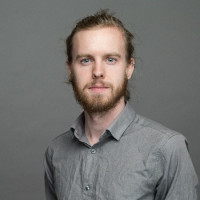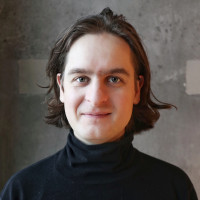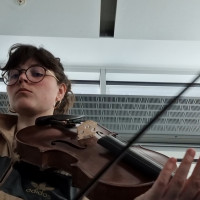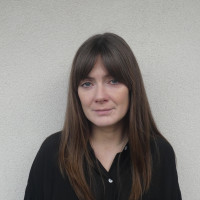Stemmer fra en svunden tid
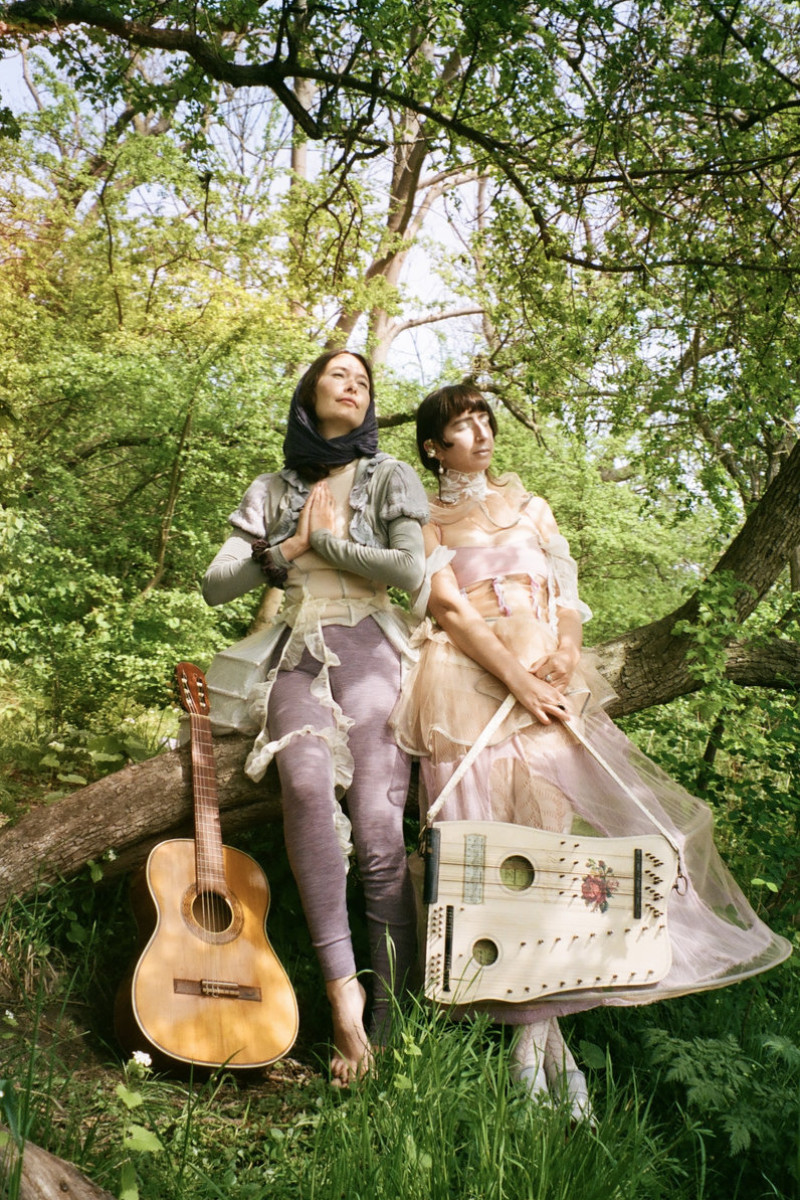
Mens Birch og Nowackas fælles debutalbum Languoria med sin synthprægede lyd lød som en drøm om en anden verden, fremstår deres andet album mere som et vindue til en svunden tid. De elektroniske elementer er trådt i baggrunden til fordel for akustiske klange fra citar, guitar og harpe, og det giver musikken en varmere, mere jordbunden karakter. Et fint eksempel er titelnummeret, hvor en sagte rislende bæk danner bagtæppe for en afslappet dialog mellem citar, guitar og stemmer, der glider mellem sang og nynnen. Der er en tydelig forbindelse til folkemusikkens enkle melodik og de små brudstykker, man selv kunne finde på at nynne i køkkenet, mens elkedlen koger. Det er netop denne personlige og inviterende tone, der gør kompositionen så velfungerende. Også »Nøkken« vidner om styrken i Birch og Nowackas sangskrivning. Med sin enkle instrumentering, blide melodi og velafstemte rumklang bringer nummeret det bedste frem i de to stemmer og fremstår næsten vægtløst – gennemsigtigt og efemerisk.
Sammen skaber den dansk-polske duo musik til folk, der drømmer om en anden tid og et andet sted, ikke fordi de nødvendigvis ønsker at fly deres nuværende eksistens, men fordi dagdrømmeriets stille stunder er fulde af ro, sikkerhed og fortryllelse. Indimellem tager følelsen af sikkerhed dog en smule overhånd, og man savner noget, der kan udfordre roen – sådan som de mere fremtrædende synths gjorde det på debutalbummet. Men er man i humør til ukompliceret skønhed og stille drømme, er Hiraeth stadig et stærkt udspil fra to vedvarende interessante stemmer i ambientgenren.

Rumor has it that the now-defunct British electronic band Coil once created a soundtrack for the cult horror film Hellraiser – so disturbing that it was rejected for being too frightening. With that story in the background, it almost felt like a natural opening to autumn’s darkness when Drew McDowall, former member of the mythical band, took the stage at Alice in Copenhagen on Wednesday evening. The Scottish musician is known for entering into striking collaborations – with Danish Puce Mary and, most recently, the American-Swedish composer Kali Malone – and it was precisely for this reason that it made sense for the evening to begin with an intense concert by Gintė Preisaitė. Like McDowall, she has the ability to transform even the simplest sounds into all-encompassing sonic landscapes.
Although both musicians clearly work from an electronic foundation, their sonic universes appeared remarkably organic, as if they were shaping living material. In her all-too-brief concert, Preisaitė created a mosaic of field recordings, voice fragments, and cassette tapes – chaotic one moment, ordered and transparent the next. With the same cool precision, McDowall unfolded his performance as if it were one long harmonium drone, slowly creeping under the skin with the inescapable logic of a horror film. For McDowall, darkness is not an alien force but a familiar companion, which he skillfully reshapes into soundscapes that are at once disturbing and reassuringly enveloping – like lying in a warm bed with the nightmare right beside you.
Both Preisaitė and McDowall moved effortlessly across the border between the acoustic and the electronic. Their music appeared as a contemporary legacy of the musique concrète tradition: an insistence that electronic music remains one of the most experimental art forms – vital, organic, and with the ability to let even the smallest sound open up an entire world in itself.
English translation: Andreo Michaelo Mielczarek
Injured Swan In a Flooded World

An injured swan lies buried in seaweed in a corner of the hall, while four lifeless bodies are scattered across the floor. More seaweed hangs from the ceiling, and the smell hits us already as we step through a bluish, latex-like curtain. The foyer was filled with heaps of seaweed and leftover plastic, and now we are inside an unfamiliar underwater landscape. The bluish light flickers on the wall, the soundscape murmurs faintly like a distant current of noise. We are underwater.
Slowly, bodies come back to life. They stretch in movements of suffering, stagger, struggle – but they rise. Subtle beats and Mads Emil Nielsen’s restless drones push the scene forward. The question of what has happened is rhetorical: everything points to climate catastrophe. Roskilde Fjord has overflowed its banks. Humans continue – despite a state of emergency, despite the flood – while the swan has succumbed.
The dystopia comes alive as the dancers, with impressively exploratory movements, search for ways to adapt to a new world. Here scenography, light and dance interact powerfully, and the senses are overwhelmed. That is precisely why it is a pity that the sound quality feels flat, when the sonic dimension plays such a role in the storytelling.
Still, Vi fortsætter... (We Continue…) succeeds in creating a universe that is at once absurd and all too recognizable. It recalls a gentler version of Ruben Östlund’s Force Majeure: the comic and tragic traits of human nature set against the inexorable forces of nature.
In the end, the dancers leave the stage and we are left in silence – with the afterthought of why we continue like this, and with the sensation of treading water long after leaving the fjord’s flooded universe.
English translation: Andreo Michaelo Mielczarek

»Your eyes are in reality luminous tunnels to another reality.« So goes one of the key lines in the opening song of Bent Sørensen’s song cycle Popsange, inspired by texts by Michael Strunge. It sets the tone and points toward the recurring lyrical themes: all-consuming love, the shared journey toward another place – and the eyes, always the eyes, appearing in almost every single song.
Mathias Monrad Møller sings with great sensitivity, bringing the text to life, and his interplay with Linda Dahl Laursen is strong. Yet Popsange has much more in common with lieder than with actual songs – not least because of the text’s at times highly poetic language. The tender, almost naïve voice of the lyrics receives its most convincing counterpoint from the piano, as in »Illusion«, where it first follows and supports the words, only to break out into rapid, dissonant chords that interrupt and almost mock the singer.
Still, traces of pop music can be found here and there. »Tid og rum« builds on repetitions with small variations, much like the verses of a pop song. And in »Hjertestrøm«, Møller colors his voice with a timbre that could easily fit on a pop album – not least because the piano here is delicate and playful, giving the voice more freedom.
All in all, Popsange is a pleasant listening experience, but I miss the presence of David Bowie and Lou Reed on the musical front. The work is at its most innovative where it dares to embrace pop. Imagine if the texts had been carried by actual verses, hooks, and choruses – elements that might have turned them into true earworms.
English translation: Andreo Michaelo Mielczarek
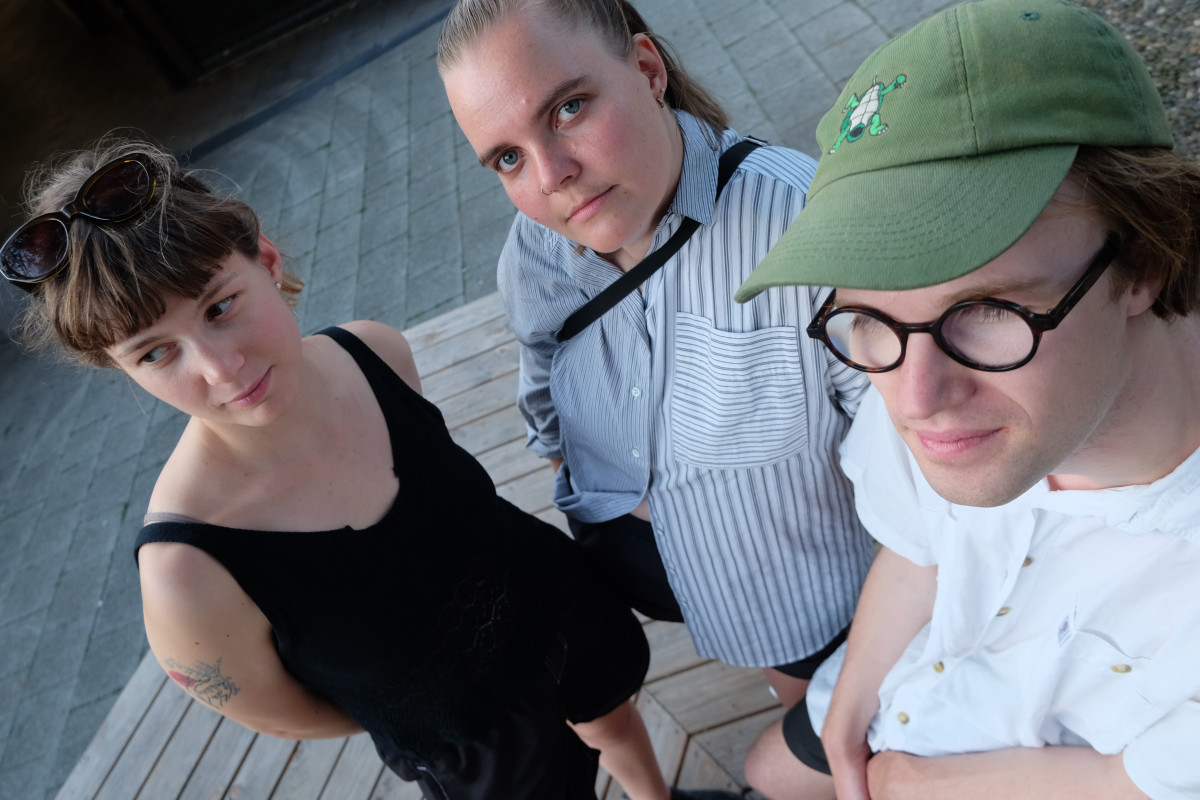
On Kaikō – the trio Treen’s second release – saxophonist Amalie Dahl, pianist Gintė Preisaitė, and percussionist Jan Philipp demonstrate confidence, mutual trust, and a distinct musical adventurousness. The opening track »Hylē« unfolds with rattling percussion and strikes seemingly aimed directly at the piano strings, stumbling forward over an underlying drone. The saxophone cuts in with phrases that sound at once admonishing and bewildered. Nothing feels meticulously calculated; instead, the music is carried by a keen awareness of the three musicians’ individual voices within the shared soundscape.
The same basic formula unfolds across the album’s three other pieces, yet always in new variations. On »Kinetic«, Dahl’s saxophone emerges with much greater weight, its slowly growing crescendo mirrored and challenged by Preisaitė’s piano. Improvised music can often slip into polite holding patterns, with the musicians taking turns in the spotlight – but not here. Dahl, Preisaitė, and Philipp appear as three drifting islands without anchors, propelled by their own currents yet inexorably drawn in the same direction. The result is both sudden shifts and an organic flow that can pull the listener into a trance, if one surrenders and simply lets the sound wash over.
It is precisely the trust between them that allows the three to play freely, without fear of leaving or losing each other. In doing so, they create a momentum that is hard to resist – whether one chooses to let the islands drift past or to float along in their current.
English translation: Andreo Michaelo Mielczarek
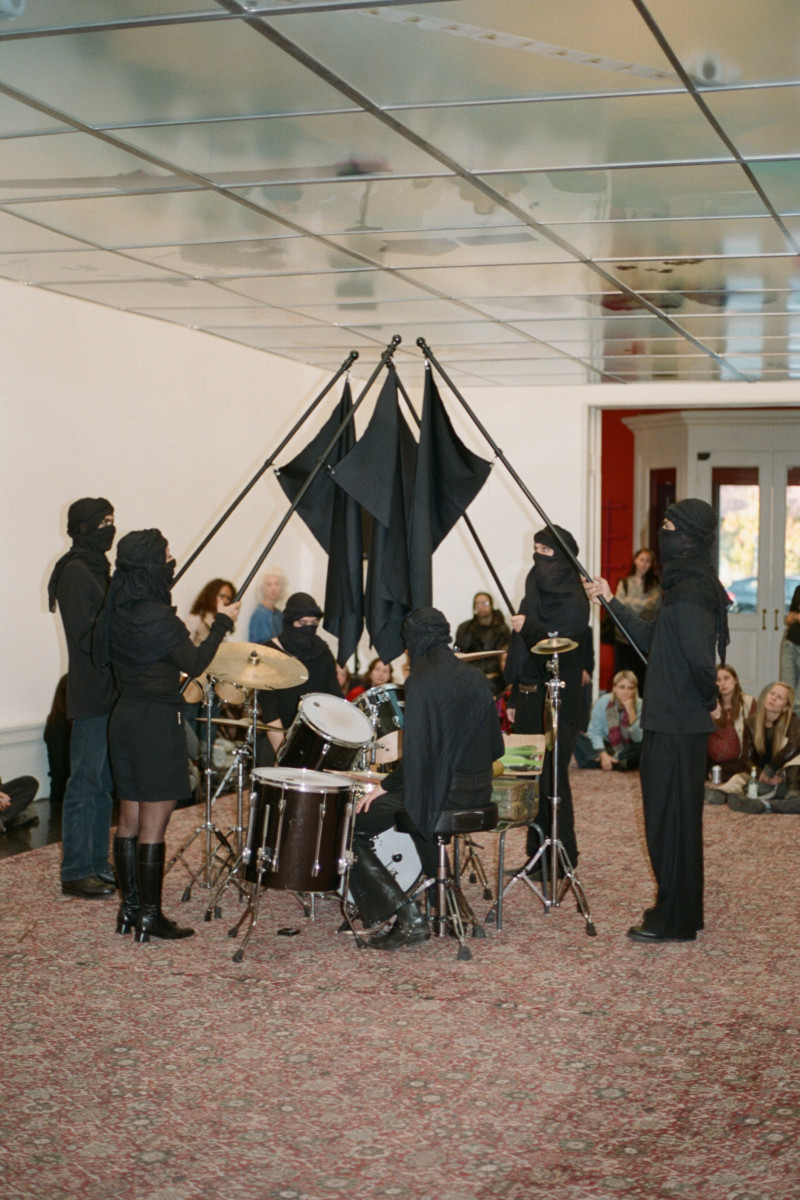
Illiyeen er billedkunstner Eliyah Mesayers fiktive stat for de statsløse, en gruppe, som kunstneren selv tilhørte indtil for få år siden. Siden 2019 har hun løbende tilføjet nationalsymboler i Illiyeens karakteristiske sorte farve, og i dag har staten sit eget postvæsen, nationalsang, uniform, flåde – og en liste af samarbejdspartnere, der løbende udvides.
Det er et smart koncept, på én gang stramt og helt åbent. Fordi staten er normadisk og kollektiv kan den opstå overalt og inkludere en større gruppe ligesindede kunstnere, eksempelvis Angel Wei fra Haloplus+ og poeten Zahna Siham Benamour. Den er et state of mind.
På Den Frie er det trommeduoen Thicket – Adam »CCsquele« Nielsen og Dan Kjær Nielsen – der performede fra hver sin side af et todelt trommesæt. Gennem improviseret trommesolo så energisk, at trommestikker fløj gennem luften, udforskede de den fælles rytme, som opstod, faldt fra hinanden og ændrede karakter undervejs. Et passende symbol på Illiyeens fællesskab; en konstant forhandling og koordinering af tempo og bevægelse.
Undervejs afløstes tommerne af et indspillet lydværk, en sfærisk elektronisk komposition med lavmælt spoken words gemt i lydbilledet. Værket stammer fra én tidligere installation, men er blevet forlænget til lejligheden, hvor også akustiske elementer, indspillet af Cæcilie Trier og Xenia Xamanek, er føjet til. Det havde en sørgmodig, følsom vibe, der stod i stærk kontrast til heftigheden i trommernes buldren. Mesayers poetiske, sortklædte univers og Thickets på en gang stramme og improviserede energiudladning gled perfekt sammen til et fællesskab, man fik lyst til at blive en del af.
